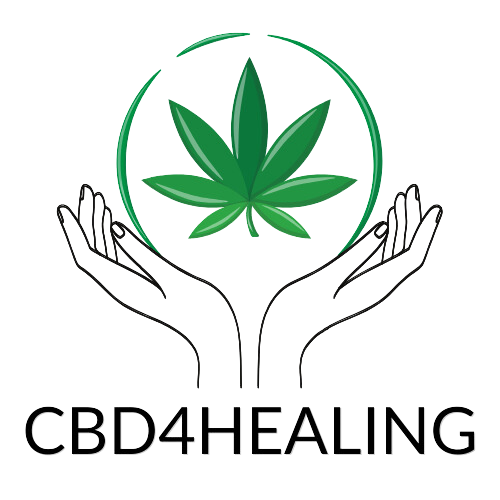CBD 101: What is CBD, What Does it Stand For, and How It Relieves Pain
December 13, 2024 – reginald stewart
Introduction to CBD
In this comprehensive guide, we'll walk you through the basics of what CBD is, how it works in the body, its benefits, and how to use CBD products. Whether you're in Canada or the US, CBD products are becoming increasingly accessible for anyone interested in natural wellness solutions.
What Does CBD Stand For?CBD stands for Cannabidiol. It is a natural compound found in the cannabis plant, particularly in hemp. Unlike THC (tetrahydrocannabinol), another well-known compound from cannabis, CBD is non-psychoactive, meaning it doesn't produce a "high." CBD is used for its potential therapeutic benefits, including managing pain, anxiety, stress, sleep issues, and more
What is CBD?CBD is one of over 100 cannabinoids found in the cannabis plant, and it’s non-psychoactive, meaning it won’t make you feel "high" like THC (tetrahydrocannabinol). CBD is extracted from the hemp plant, a variety of cannabis that contains minimal levels of THC (usually less than 0.3%), making it legal in many places in both Canada and the US.
CBD products are available in many forms, including oils, tinctures, capsules, gummies, creams, and even edibles. As the CBD market grows, it’s important to choose high-quality products from trusted sources to ensure safety and effectiveness.
How Does CBD Work in the Body?CBD works by interacting with the body’s endocannabinoid system (ECS), a complex network of receptors that helps regulate a variety of functions, such as mood, sleep, appetite, and immune response. When you use CBD, it binds to receptors in the ECS, helping to maintain balance (homeostasis) in the body.
This interaction may help reduce inflammation, manage pain, improve sleep, and even alleviate symptoms of anxiety. While more research is needed to fully understand CBD’s mechanisms, early studies suggest it holds promise as a natural remedy for various health concerns.
Common Benefits of CBDCBD is known for offering a wide range of potential benefits. Here are some of the most common uses:
What does CBD Stand For?CBD stands for Cannabidiol. It is a natural compound found in the cannabis plant, particularly in hemp. Unlike THC (tetrahydrocannabinol), another well-known compound from cannabis, CBD is non-psychoactive, meaning it doesn't produce a "high." CBD is used for its potential therapeutic benefits, including managing pain, anxiety, stress, sleep issues, and more
CBD for Pain ReliefMany people turn to CBD for natural pain relief. CBD is believed to reduce inflammation, which can help alleviate pain associated with conditions like arthritis, muscle soreness, and chronic pain. Topical CBD creams and oils can be applied directly to affected areas for targeted relief.
CBD for Anxiety and Stress
CBD may help support mental health by promoting a sense of calm and relaxation. It is commonly used to reduce symptoms of anxiety and stress, which are widespread concerns for many people. Studies have shown that CBD may have an impact on serotonin receptors in the brain, a neurotransmitter that plays a role in mood regulation.
CBD for Better Sleep
If you’re struggling with sleepless nights, CBD may help. Many people use CBD to improve sleep quality and reduce insomnia. By promoting relaxation and reducing anxiety, CBD helps create an environment that supports better sleep.
CBD for Skin Care
CBD is also gaining popularity in the beauty industry due to its anti-inflammatory properties, which may help reduce acne, redness, and irritation. CBD-infused creams and lotions can nourish the skin while promoting a more balanced complexion.
CBD for Overall Wellness
Many users incorporate CBD into their daily routines for general wellness benefits. CBD may help enhance focus, support immune function, and promote relaxation without the psychoactive effects of THC. Its versatility makes it an excellent addition to your daily health regimen.

How to Use CBD Products
CBD is available in many forms, each with its own benefits. Here's a breakdown of popular types of CBD products:
- CBD Oil/Tinctures: A fast-acting option that you can take sublingually (under the tongue) for quick absorption. It’s ideal for people looking for immediate effects, such as pain or anxiety relief.
- CBD Gummies: A tasty and convenient way to take CBD. They’re perfect for those looking for a consistent dosage and a longer-lasting effect.
- CBD Capsules: A precise way to dose CBD, capsules are an easy option for those looking to incorporate CBD into their daily routine.
- CBD Topicals: Creams, lotions, and balms are ideal for localized pain or skin conditions. They allow for targeted relief and are absorbed directly through the skin.
Is CBD Legal in Canada and the US?
Yes, CBD is legal in Canada for both medical and recreational use, as long as it contains less than 0.3% THC. In the US, CBD derived from hemp (containing less than 0.3% THC) is federally legal under the 2018 Farm Bill. However, laws can vary from state to state in the US, so it’s essential to check local regulations before purchasing.
Conclusion: Is CBD Right for You?
CBD has shown promise for a variety of health concerns, from managing pain and anxiety to supporting better sleep and skincare. While the research is still in its early stages, CBD offers a natural alternative that many people in both Canada and the US are turning to for overall wellness. If you're interested in trying CBD, be sure to consult a healthcare professional, especially if you're on medication or have a pre-existing medical condition.
Whether you're new to CBD or already a fan of its benefits, there’s a product out there for you. Explore our wide range of CBD products for pain, anxiety, sleep, and overall wellness today.
